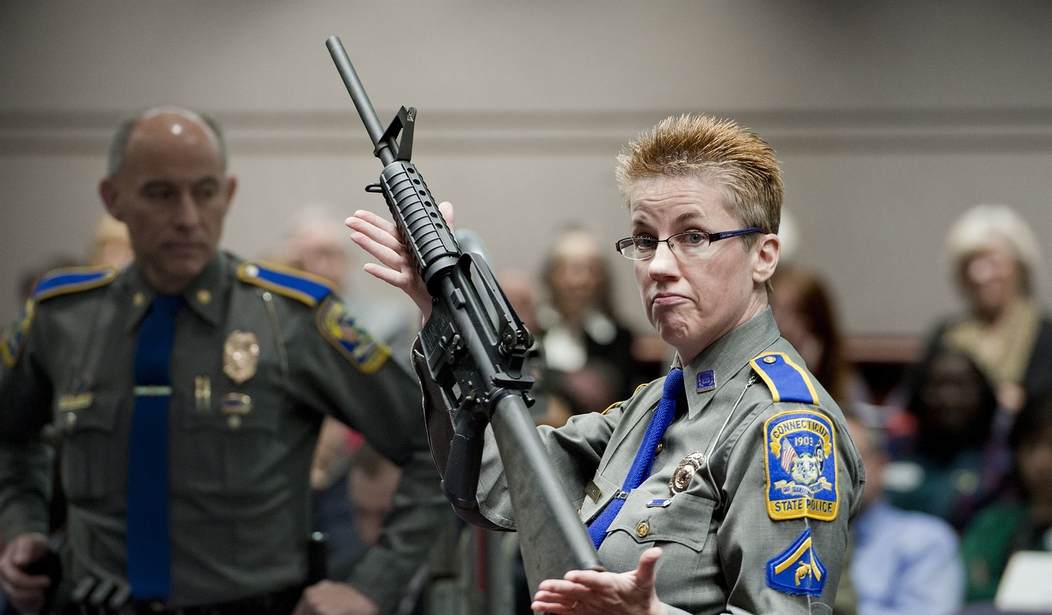Gun control groups are cheering today after the Supreme Court denied an appeal by the gun maker Remington seeking to block a lawsuit over its advertising practices brought by parents of students killed in the attack at Sandy Hook Elementary in Newtown, Connecticut in 2012. The justices released the decision without comment, rejecting the argument by Remington’s attorneys that the 2005 Protection of Lawful Commerce in Arms Act prevented these types of suits. A state court in Connecticut agreed with the gunmaker, but the state’s Supreme Court ruled that despite the PLCAA, gun companies could be sued under state law for their marketing practices. Today’s decision by SCOTUS means the lawsuit will continue.
The case tests the reach of a 2005 law passed by Congress to protect firearms manufacturers from being held liable for crimes committed by gun purchasers. That law was hailed by the National Rifle Association, but it included exceptions, including one for violating rules related to marketing and advertising.
Gun control advocates have said a victory by the families in the long-running dispute could lead to more lawsuits and damaging disclosures involving the firearms industry.
The Connecticut Supreme Court ruled 4-3 in March that Remington can be sued because of the way the AR-15-style Bushmaster rifle was marketed. The families’ lawsuit contends that Remington glorified the gun in advertising aimed at young people, including in violent video games.
Just because the Supreme Court has allowed the case to continue doesn’t mean that the plaintiffs are assured of a victory. For gun control advocates, however, today’s decision is a big win because it opens the door to similar lawsuits against other firearms manufacturers. This is the big reason why the Protection of Lawful Commerce in Arms Act was passed in the first place. Gun control groups had partnered with cities around the country in the 1990s and were trying to inflict a “death by a thousand cuts” legal strategy of bankrupting the firearms industry with these junk lawsuits. As Second Amendment attorney and scholar Dave Kopel put it in 2003:
At an American Bar Association symposium in 1999, one of the plaintiffs’ attorneys for the antigun lawsuits explained that the attorneys had read the Dun & Bradstreet reports on the firearms companies, estimated how much the companies could spend defending themselves against litigation, and then filed so many cases in so many jurisdictions that the gun companies would not be able to spend the money to see the cases through to a verdict.
The Protection of Lawful Commerce In Arms Act put a stop to the most egregious abuses by the gun control lobby, but today’s decision may allow for a new legal strategy to accomplish the same old goals of the anti-gun groups.
This case could come back to the U.S. Supreme Court after the trial has taken place, depending on the outcome. There may be legal issues that come up during the trial that could be grounds for appeal. In the meantime, however, gun control advocates are sure to take advantage of today’s decision wherever they can. I wouldn’t even be surprised if anti-gun governors and attorneys general try to partner up in a high-profile lawsuit against some of the bigger gun manufacturers.
By focusing on the advertising and marketing of firearms, gun control groups and their attorneys can gain access to all kinds of company information and internal communications during the discovery process. Each document will be carefully parsed and spun to make it seem like the gun industry is out to achieve maximum mayhem with every sale of a firearm, but the reality is quite different.
We know, for example, that semi-automatic rifles are used in a very small number of violent crimes. Even the recent report on active assailants in schools issued by the Secret Service noted that rifles were used in a small number of incidents in schools. The chief attorney for the plaintiffs pointed to one bit of marketing by Remington in particular as evidence of malfeasance, but it seems like a reach to me.
In court papers, Donald Verrilli, the lawyer for the families suing Remington, said its advertising “continued to exploit the fantasy of an all-conquering lone gunman, proclaiming: ‘Forces of opposition, bow down. You are single-handedly outnumbered.’”
I don’t mean to be crude, but the innocent lives who were brutally murdered in the classrooms of Sandy Hook Elementary would have been single-handedly outnumbered if the killer had brought a pistol to the school as well. There was no armed response on campus; no school resource officer or armed staff who could fight back. To me, that marketing pitch wasn’t about murdering kindergarteners in their classrooms. It was about moms protecting their families against multiple intruders. It was about a Florida man protecting himself when four armed intruders broke into his home and began shooting.
I’m not going to be on the jury, however, and who knows what they’ll decide. All we know is that the lawsuit against Remington will go on, and gun control groups are likely to file similar suits against other manufacturers wherever possible.









